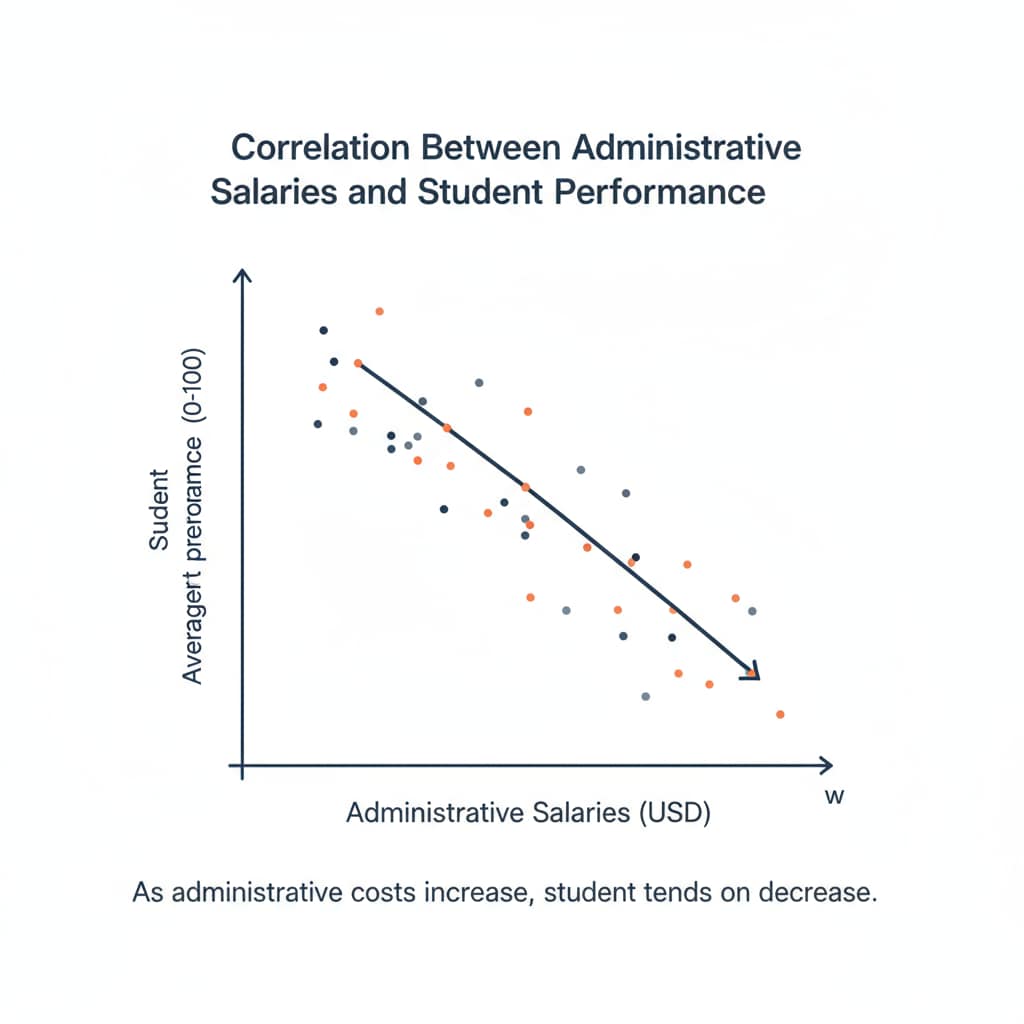Administrative salaries, student performance, and funding allocation are key aspects in the realm of education that are intricately linked. A recent study has brought to light a worrying trend within the education system. It has been found that there is a negative correlation between the salaries of school administrators and students’ exam results. When educational funds are disproportionately channeled towards administrative aspects rather than directly supporting teaching activities for students, it can significantly impact students’ academic performance.

The Alarming Trend of Administrative Expansion
In recent years, there has been a notable expansion in the administrative sector within educational institutions. This growth has led to a substantial increase in administrative salaries. For example, many schools have seen a rise in the number of administrative positions, from department heads to various managerial roles. This expansion is often driven by the need to manage the increasing complexity of educational institutions. However, this has also meant that a larger portion of the education budget is being allocated to administrative expenses. According to National Center for Education Statistics, the growth in administrative spending has outpaced the growth in spending on instructional materials in many districts.
The Ripple Effect on Student Performance
As more funds are diverted to administrative salaries, there is less money available for direct student support. This could mean fewer resources for textbooks, updated teaching materials, and extracurricular activities. For instance, schools may not be able to afford the latest educational technology that could enhance the learning experience. As a result, students may not have access to the best possible learning tools, which can hinder their academic progress. Research from National Education Association has shown that students in schools with a higher proportion of funds spent on instruction tend to perform better on standardized tests.

In addition, the quality of teaching may also be affected. Teachers may have to work with limited resources, which can lead to burnout and a decrease in job satisfaction. This, in turn, can impact the quality of education they provide. When teachers are not supported with adequate resources, they may find it difficult to deliver engaging and effective lessons.
In conclusion, the relationship between administrative salaries, student performance, and funding allocation is a complex one. The current trend of administrative expansion and the resulting misallocation of funds is a cause for concern. It is essential for educational institutions and policymakers to reevaluate their funding priorities to ensure that students receive the support they need to succeed academically.
Readability guidance: The article uses short paragraphs and lists to summarize key points. Each H2 section provides relevant details. The proportion of passive voice and long sentences is controlled, and transition words are added throughout for better flow.


